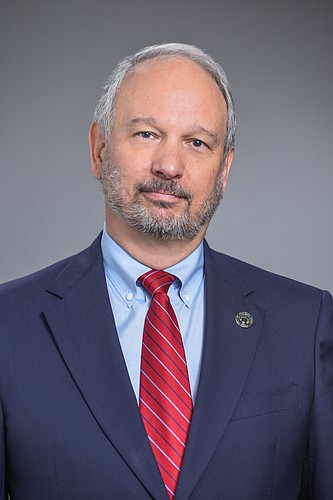LARRY SILVESTRI
President
Silvestri Law P.A.
St. Petersburg
Larry Silvestri has been practicing commercial real estate law for more than 35 years, representing clients such as a mall landlord, an electronics retailer, a real estate investment trust and a ground-up developer. In early 2015, the Michigan native left the Shops at Wiregrass developer Goodman Co., where he was senior vice president and general counsel, to open Silvestri Law. In the practice’s five-plus years, Silvestri has negotiated contracts, leases and other legal documents for numerous commercial real estate projects in the Tampa Bay area, with an emphasis on retail properties.
What are the biggest changes you’ve seen in commercial real estate as a result of the COVID-19 pandemic?
Retail has undergone some of the biggest changes. Today, you’re seeing tenants seeking lease renegotiations and rent deferrals from their landlords. A lot of restaurants, I’m afraid, will not survive this because they lack the working capital necessary to keep going and landlords are going to lose patience or the ability to defer further. Commercial real estate is essentially like a three-legged stool, with tenants, landlords and lenders all involved. I think the smart retailers are realizing they have to retool. For restaurants, that means more outdoor seating than ever, and for landlords, it likely means vacancies and backfilling space, unfortunately.
What are you advising tenants and landlords to do to handle the effects of the pandemic?
Both tenants and landlords are going to have to make deals based on COVID-19. In retail leases, there’s typically a clause that addresses continuously being open for business without interruption, but in this case, the government said that retailers could not be open, so the question is then, are they in default? I think the biggest misconception many tenants have is that events like COVID-19 should excuse the payment of rent. It may get deferred for a time, but tenants should not be caught in the idea that they don’t have to pay. And that’s because tenants have the flexibility to come up with new sources of revenue, whether it’s omnichannel sales by apparel merchants or curbside pickup for restaurants. Most landlords can’t do that. The federal (Paycheck Protection Program) loans are a good example. PPP loans don’t help landlords that much because that money was intended to cover payrolls or rent.
What’s the biggest challenge you’re facing from a legal perspective that has come about from the pandemic?
Having to explain to tenants that their leases remain in effect even though they are facing dire circumstances and can’t open or stay open and having to explain to a landlord that force majeure does not give them the out they think it should. So it’s the emotional part of dealing with people that’s been the biggest challenge. I’ve had clients tell me they’ve read over something and believe they’re right, and in many cases they are, but at the same time, people also have to deal with today’s reality. This is a bad scenario for everyone. I tell clients, especially landlords, that if there’s something they can do to help a tenant, they should, because ultimately that will be good for everyone. Leasing really slowed in March and April but then picked back up in July and August. I’m optimistic that people will together find a way to get through this through creative measures. In the retail space, that means right now perhaps limiting the number of people who can enter a store at one time, as I’ve seen many retailers do. That’s encouraging.
Where do you think Tampa Bay commercial real estate markets will be a year from now?
I think we’ll see things a lot more stable than they are today. Tampa Bay had the benefit before the pandemic of being a growing area, which helps. The diversity of the labor force is significant, too, so I think we’ll be in better shape this time in 2021 than a lot of parts of the country. There will be shifting pieces here and there, but I don’t see the bottom falling out of any asset class. I don’t have a lot of insight into hotels — they’re kind of a different animal — so I won’t address their future. Obviously they’ve been greatly impacted. But I think a year from now we’ll be pretty close to back to normal. If we get a vaccine that’s successful we’ll be even closer to normal, at least until the next crazy thing happens.






